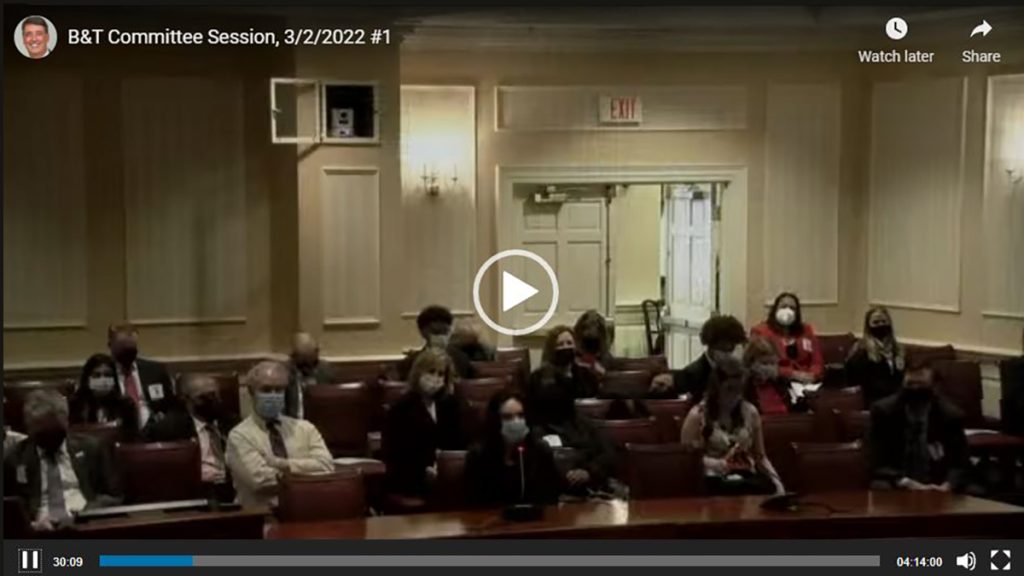Meagan Andrade, The Arc Baltimore's Workforce Development Specialist and parent advocate, testified in front of the Maryland Budget and Taxation Committee in favor of SB 636 (MDH - Waiver Programs - Waitlist Reduction / End the Wait Act).
In addition, Meagan provided written testimony as well. Read the full testimonial here:
Testimony in favor of SB 636 | MDH – Waiver Programs – Waitlist Reduction (End the Wait Act)
Written and submitted by Meagan Andrade, A resident of District 42A
Mother of 5 including 3 adults with developmental disabilities who live in districts 42A, 10, and 47A
Workforce Development Specialist at The Arc Baltimore
Thank you, committee members, for taking the time to consider this testimony in support of SB 636 which reduces the waitlist for waivers that support Marylanders with developmental disabilities. Over 9,200 Marylanders are currently waiting for the Community Pathways and Autism waivers alone. The Autism Waiver Registry has a current wait time of 9 years. When our family moved to Maryland in 2013, I was told that my son, who was 12, would need to wait seven years for service eligibility. However, we were notified of his eligibility at the age of 21 when he had already surpassed the age threshold to access services. Now, families are told that the wait time for waiver services has increased to at least nine years!
The waivers grant access to therapeutic programs, respite, housing, nursing and medical oversight, access to Medicaid, and most importantly, the direct support professionals who provide essential services including job coaching, facilitating community participation, and supporting daily activities of living. In the simplest terms – there are Marylanders with disabilities who need direct support to eat, bathe, dress, manage medications, and work. In addition, they help people access their banks, doctors, churches, schools, and neighborhoods. Those on the waiting list cannot receive the necessary direct support to access these services. There are Marylanders capable of work who are sitting at home unemployed. There are parents and other relatives of people with disabilities who need to work but can’t because they are home caring for their loved ones. Marylanders aren’t getting to their medical appointments, places of worship, and other places in their community. They simply need support, and it is essential so that all Marylanders can participate in the economy and culture of our State.
Society tends to view people with developmental disabilities as special or cute because we lack exposure to this diverse community– largely because they are at home without support services, excluded from the workforce, and fighting not to be ‘othered.’ As Maryland residents – legislators, business owners, and neighbors – it is our responsibility to include all Marylanders in our society. Reducing the waitlists gives Marylanders with disabilities access to job opportunities, and it will strengthen the market due to a diversified workforce. They can enjoy good health, engage in their neighborhoods, advocate for themselves, and be included in our great State.
Not working to reduce these waiver waitlists keeps a group of Marylanders hidden, forgotten, and oppressed through lack of access. I believe that we all know creating access and equity for people with disabilities is the right thing to do. Now we take on the task of doing it. I ask each of you to consider how access to waiver services is a human rights issue and one that needs to be addressed immediately. Please give weight to this issue as you consider a supplementary budget as well. Our state can be a leader on this human rights issue. Thank you.


